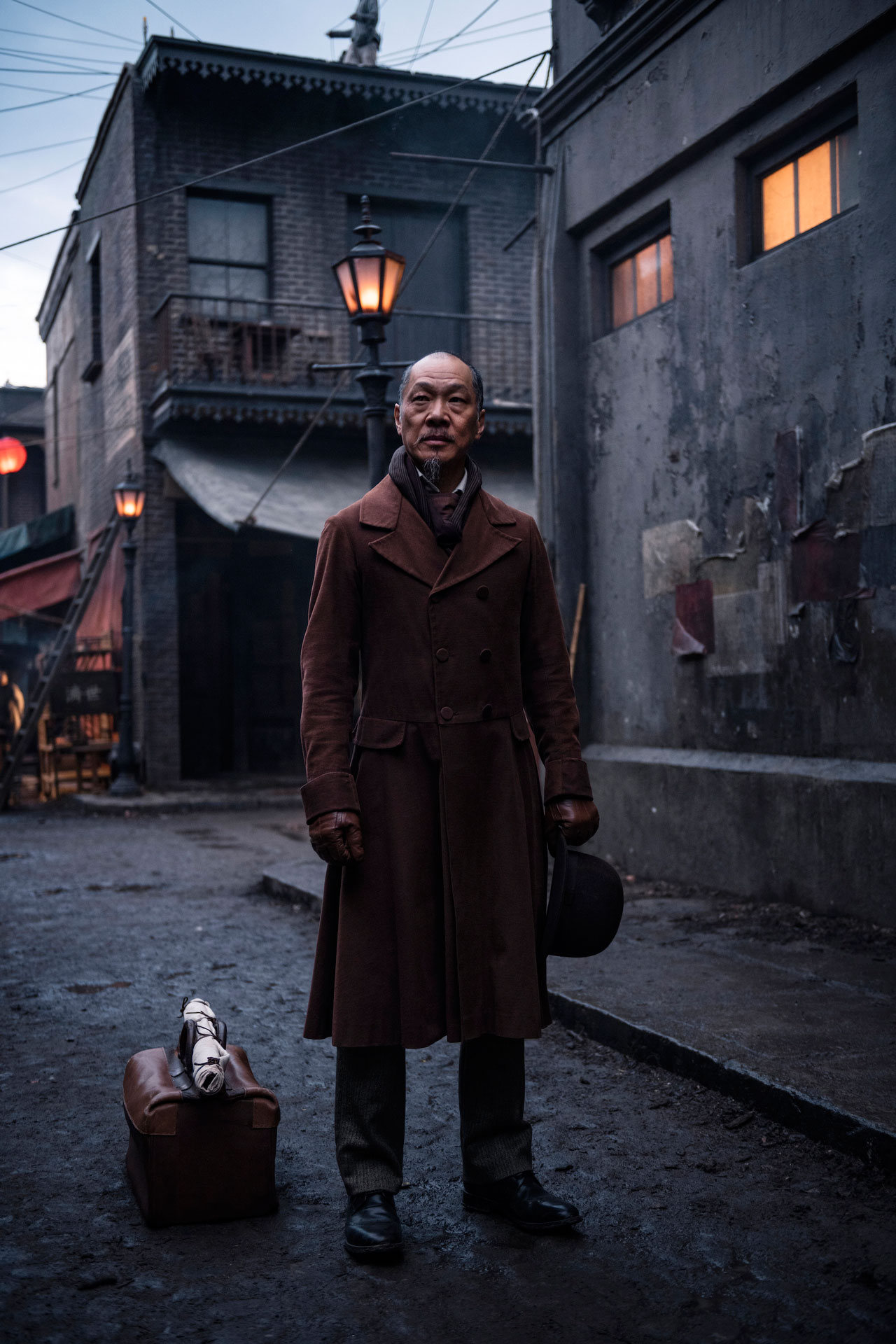After last night’s fateful conclusion of Warrior Season Two, we saw not only the beginning of new rulership for the Hop Wei Tong but the end of an era for that same Tong. Passing on the mantle to his son, Young Jun (Jason Tobin), the leader of the Hop Wei Tong, Father Jun (Perry Yung), set off on a trip of his own. After fighting in the Opium Wars, losing his eye in a badass fight with a British Soldier, and starting his own Tong in Chinatown, Father Jun has led a colorful life.
He spent much of Season Two trying to guide his son in hopes that he would temper his impatience and grow into a good leader. After defending Chinatown alongside Young Jun, the two began to see each other eye-to-eye. And of course, that is when he felt that it was time to move on. While the future of the Hop Wei seems to be at least safe in Young Jun’s hands for now, what will happen to Father Jun?
I talked to Perry Yung about where we might see Father Jun travel to. As a self-proclaimed history buff and lover of Chinese American history, he had a fantastic plan to expand the show beyond just the borders of Chinatown San Francisco. “It’s an opportunity for White Americans to observe themselves,” says Yung. “So if we show everything he’s encountered kind of like, in a way, when David Carradine [was in] the original King Fu. When he walks around the Midwest we got to see through his eyes how racist White People were. So it’s not to say that Americans are racist but we can learn about America through Father Jun leaving Chinatown.”
We already saw a bit of this in the Season One episode “The Blood and the Shit,” when Ah Sahm and Young Jun were forced to go into the deserts of Nevada to pick up a dead body. In the standalone-type episode, we saw the nuances of interactions when Ah Sahm revealed that he spoke perfect English versus the American-born Young Jun who could only speak Chinese. From a Chinese American’s point of view, a lot of what Young Jun was saying about identity really spoke to me.

Then, of course, the reference to the original Kung Fu calls back to Bruce Lee and his original script treatment that supposedly inspired Kung Fu. Lee auditioned to play the lead character Kwai Chang Caine, a Shaolin monk from Chinese and American parents. The studio deemed that the audience might have difficulty understanding Lee and therefore cast the white actor David Carridine.
“I thought that maybe he would go to the next big Chinatown which was Chicago, maybe get on a train,” Yung continues. “Yeah, and then maybe they can connect a storyline. Maybe, people hear about Father Jun and they heard he was kicked out of Chinatown, and maybe they kidnap him. I had a fantasy that I talked about one of the writers [that] then they would go to Chicago to fight another Tong in Chicago to free Father Jun, you know? [Then that] makes larger connections and builds upon relationships, and then finally get to New York City.”
“So, understanding Chinese American history and how those Chinatowns worked and how they basically formed following the building of the railroads, it would be a great thing to follow these Chinatowns wherever they landed. Kind of like Boardwalk Empire when they would get to Providence, Rhode Island. I had that kind of fantasy; we can really learn about Chinese Americans. Or when they get to the South, [like] there’s a recent documentary about Mississippi Chinese. And maybe they come across all these Chinese who speak with a Southern accent. I mean how great would that be?”
Along with being a history buff, stage and screen actor, and trained dancer, Yung is also an accomplished flautist. In Season One, while Ah Sahm and Li Yong train for their fight, Father Jun can be spotted on screen playing the flute. “Father Jun is playing to summon up the spirits, cultivate the chi,” Yung explains. He was also asked to do some improvisational recording so that production could insert the music throughout certain scenes. This is pertinent because the distinct flute score you hear during Father Jun’s farewell is actually Perry Yung playing his flute. “That was a great nod from the producers to me,” Yung says. “It was pretty awesome. I didn’t ask for it.”
With the future of Warrior uncertain due to the end of original programming at Cinemax, hopefully, the move from Cinemax to HBO Max will bring a new audience to Warrior and inspire HBO to pick up the show for more seasons so we can see some of these ideas play out. With the season completed, Warrior is set to move to HBO Max, so, if you haven’t seen the show yet, now is the best time to start!